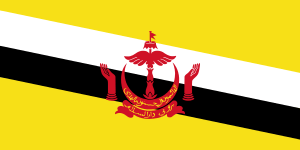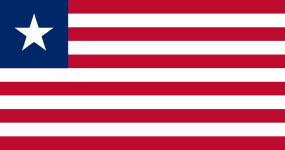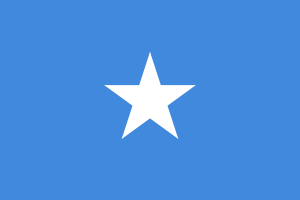1992 Summer Olympics
 | |
| Host city | Barcelona, Spain |
|---|---|
| Motto |
Amigos Para Siempre (Spanish) Amics Per Sempre (Catalan) (Friends Forever) |
| Nations participating | 169 |
| Athletes participating | 9,356 (6,652 men, 2,704 women) |
| Events | 257 in 25 sports |
| Opening ceremony | July 25 |
| Closing ceremony | August 9 |
| Officially opened by | King Juan Carlos I |
| Athlete's Oath | Luis Doreste Blanco |
| Judge's Oath | Eugeni Asensio |
| Olympic Torch | Antonio Rebollo (paralympic archer) |
| Stadium | Estadi Olímpic Lluís Companys |
| Part of a series on |
|
The 1992 Summer Olympic Games (Spanish: Juegos Olímpicos de Verano de 1992) (Catalan: Jocs Olímpics d'estiu de 1992), officially known as the Games of the XXV Olympiad, were an international multi-sport event celebrated in Barcelona, Catalonia, Spain in 1992. The International Olympic Committee voted in 1986 to separate the Summer and Winter Games, which had been held in the same year since 1924, and place them in alternating even-numbered years, beginning in 1994. The 1992 Summer Games were the last to be staged in the same year as the Winter Games.[1] Due to the end of the Cold War, these games were the first without boycotts since 1972.[2] In fact the Olympics was the final success of the former Soviet Union (despite only part of it taking part), and biggest of the "Olympic flag" (Nations from the former USSR competed as the Unified Team, coming 1st in the overall rankings).[3]
Host city selection
Barcelona, the birthplace of then-IOC president Juan Antonio Samaranch and the second largest city of Spain, was selected over Amsterdam, Belgrade, Birmingham, Brisbane and Paris in Lausanne, Switzerland, on October 17, 1986, during the 91st IOC Session.[4] It had bid for the 1936 Summer Olympics, losing out to Berlin.
| 1992 Summer Olympics bidding results[5] | ||||||
|---|---|---|---|---|---|---|
| City | NOC Name | Round 1 | Round 2 | Round 3 | ||
| Barcelona | | 29 | 37 | 47 | ||
| Paris | | 19 | 20 | 23 | ||
| Brisbane | | 11 | 9 | 10 | ||
| Belgrade | | 13 | 11 | 5 | ||
| Birmingham | | 8 | 8 | — | ||
| Amsterdam | | 5 | — | — | ||
Highlights
- At the Opening Ceremony, Greek mezzo-soprano, Agnes Baltsa sang "Romiossini" while the Olympic flag was being walked around the entire stadium before being hoisted to the singing of the Olympic Hymn by Alfredo Kraus in Catalan and Spanish.
- The Olympic flame cauldron was lit by the Paralympic archer Antonio Rebollo, who shot a flaming arrow lit by the last torch runner into it. Rebollo overshot the cauldron[6] as this was the original design of the Lighting scheme.[7]).[8]
- South Africa was allowed to compete in the Olympics for the first time since the 1960 Games, after a long suspension for its apartheid policy. White South African runner Elana Meyer and black Ethiopian runner Derartu Tulu fought a close race in the 10,000 m (won by Tulu) and then ran a victory lap hand in hand.[9]
- Following its reunification in 1990, Germany sent a single, unified Olympic team for the first time since the 1964 Games.
- As the Soviet Union had been dissolved in 1991, the Baltic nations of Estonia, Latvia and Lithuania sent their own teams for the first time since 1936. The other Soviet republics competed under the name Unified Team.
- The break-up of SFR Yugoslavia led to the Olympic debuts of Croatia, Slovenia and Bosnia and Herzegovina. Due to United Nations sanctions, FR Yugoslavian athletes were not allowed to participate with their own team. However, individual athletes could compete under the Olympic flag as Independent Olympic Participants.
- Fermín Cacho won the 1500 metres in his home country – the first Spaniard ever to win an Olympic gold in a running event.[10]
- In the diving competitions, held in the view of the Sagrada Família, Chinese Fu Mingxia won the high dive event at the age of 13, becoming the youngest gold medalist at the Olympics of all time .
- In men's artistic gymnastics, Vitaly Scherbo from Belarus, representing the Unified Team, won six gold medals, including four on a single day. Five of the six golds were in individual events, tying Eric Heiden's record for individual gold medals at a single Olympics (Michael Phelps would break this record in 2008).
- In women's artistic gymnastics, Tatiana Gutsu took gold in the All-Around competition edging the United States' Shannon Miller.
- Russian swimmers dominated the freestyle events, with Alexander Popov and Yevgeny Sadovyi each winning two events (Sadovyi won a third in the relays).
- Evelyn Ashford won her fourth Olympic gold medal in the 4x100 metre relay, making her one of only four female athletes to have achieved this in history.
- The young Krisztina Egerszegi of Hungary won three individual swimming gold medals.
- In women's 200 metres breaststroke, Kyoko Iwasaki of Japan won a gold medal at age of 14 years and 6 days, became the youngest-ever gold medalist in swimming competitions at the Olympics.
- After being demonstrated six times, baseball became an Olympic sport, with Cuba winning the gold medal, Chinese Taipei winning silver, and Japan, the bronze.
- Badminton and women's judo became part of the Olympic programme, while slalom canoeing returned to the Games after a 20-year absence.
- Roller hockey became a demonstration sport in the 1992 Games. Argentina won the gold medal. Basque pelota and taekwondo were also demonstration sports.
- Several of the U.S. men's volleyball gold medal team from the 1988 Olympics returned to vie for another medal. In the first round, they lost a controversial match to Japan, sparking them to shave their heads in protest (including Steve Timmons, sacrificing his trademark red flattop for the protest).
- Mike Stulce of the U.S. won the men's shot put, beating heavy favored Werner Günthör of Switzerland.
- On the 20th anniversary of the Munich massacre and the 500th anniversary of the Alhambra Decree, Yael Arad became the first Israeli to win an Olympic medal, winning a silver medal in judo. The next day, Oren Smadja became Israel's first male medalist, winning a bronze in the same sport.
- Derek Redmond of Great Britain tore a hamstring during a 400m semi-final heat. As he struggled to finish the race, his father entered the track without credentials and helped him complete the race, to a standing ovation from the crowd.
- Gail Devers won the 100 meter dash in one of the closest races in history. 5 women finished within 0.06 seconds of each other. In 100 meter hurdles Devers was a clear favorite to win and in the final seemed to be running towards a second gold medal, when she hit the final hurdle and stumbled over the finish line in fifth place, leaving Voula Patoulidou from Greece as the upset winner.
- In basketball, the admittance of professional players led to the formation of the "Dream Team" of the United States, featuring Michael Jordan, Magic Johnson, Larry Bird and other NBA stars. The Dream Team, which easily won the gold medal, would be inducted as a unit into the Basketball Hall of Fame in 2010.
- After making the semifinals of two grand slams at the age of 14, Jennifer Capriati won the single's tennis competition at the age of 16.
- Two gold medals were awarded in solo synchronized swimming, after a scoring error in which a judge inadvertently entered an 8.7 instead of the intended 9.7 in the computerized scoring system for one of Sylvie Fréchette's figures. An immediate protest to FINA was unsuccessful. The error ultimately placed Fréchette second, unable to catch Kristen Babb-Sprague for the gold medal. In December 1993, however, FINA awarded Fréchette a gold medal, replacing her silver medal and leaving the two swimmers both with gold.[11]
- After winning a silver medal at 1988 Olympics, Indonesia gained its first gold medal. Susi Susanti won the gold in Badminton Women Singles after defeated Bang Soo-hyun in final round. Indonesia also won gold medal at men singles competition by Alan Budikusuma. Several years later, Alan married her and they both got a nickname as golden bride or olympic bride.
Records
Venues

- Montjuïc Area:
- Cross-country course – modern pentathlon (running)
- Estadi Olímpic de Montjuïc – opening/closing ceremonies, athletics
- Palau Sant Jordi – gymnastics (artistics), volleyball (final), and handball (final)
- Piscines Bernat Picornell – modern pentathlon (swimming), swimming, synchronized swimming, and water polo (final)
- Piscina Municipal de Montjuïc – diving and water polo
- Institut National d'Educació Física de Catalunya – wrestling
- Mataró – athletics (marathon start)
- Palau dels Esports de Barcelona – gymnastics (rhythmic) and volleyball
- Palau de la Metal·lúrgia – fencing, modern pentathlon (fencing)
- Pavelló de l'Espanya Industrial – weightlifting
- Walking course – athletics (walks)
- Diagonal Area:
- Estadi del FC Barcelona – football (final)
- Palau Blaugrana – judo, roller hockey (demonstration final), and taekwondo (demonstration)
- RCD Espanyol Stadium – football
- Real Club de Polo de Barcelona – equestrian (dressage, jumping, eventing final), modern pentathlon (riding)
- Vall d'Hebron Area:
- Archery Field – archery
- Pavelló de la Vall d'Hebron – basque pelota (demonstration) and volleyball
- Tennis de la Vall d'Hebron – tennis
- Velodrome – cycling (track)
- Parc de Mar Area
- Estació del Nord Sports Hall – table tennis
- Olympic Harbour – sailing
- Pavelló de la Mar Bella – badminton
- Subsites
- A-17 highway – cycling (road team time trial)
- Banyoles Lake – rowing
- Camp Municipal de Beisbol de Viladecans – baseball
- Canal Olímpic de Catalunya – canoeing (sprint)
- Circuit de Catalunya – cycling (road team time trial start/ finish)
- Club Hípic El Montayá – equestrian (dressage, eventing endurance)
- Estadi de la Nova Creu Alta – football
- Estadi Olímpic de Terrassa – field hockey
- Estadio Luís Casanova – football
- La Romareda – football
- L'Hospitalet de Llobregat Baseball Stadium – baseball (final)
- Mollet del Vallès Shooting Range – modern pentathlon (shooting), shooting
- Palau D'Esports de Granollers – handball
- Parc Olímpic del Segre – canoeing (slalom)
- Pavelló Club Joventut Badalona – boxing
- Pavelló de l'Ateneu de Sant Sadurní – roller hockey (demonstration)
- Pavelló del Club Patí Vic – roller hockey (demonstration)
- Pavelló d'Esports de Reus – roller hockey (demonstration)
- Pavelló Olímpic de Badalona – basketball
- Sant Sadurní Cycling Circuit – cycling (individual road race)
Medals awarded
The 1992 Summer Olympic programme featured 257 events in the following 25 sports:
|
|
|
|
Demonstration sports
 Basque pelota (10)
Basque pelota (10)  Roller hockey (quad) (1)
Roller hockey (quad) (1) Taekwondo (16)
Taekwondo (16)
Calendar
- All times are in Central European Summer Time (UTC+2)
| ● | Opening ceremony | Event competitions | ● | Event finals | ● | Closing ceremony |
| Date | July | August | |||||||||||||||
|---|---|---|---|---|---|---|---|---|---|---|---|---|---|---|---|---|---|
| 24th Fri | 25th Sat | 26th Sun | 27th Mon | 28th Tue | 29th Wed | 30th Thu | 31st Fri | 1st Sat | 2nd Sun | 3rd Mon | 4th Tue | 5th Wed | 6th Thu | 7th Fri | 8th Sat | 9th Sun | |
| Archery | ● | ● | ● ● | ||||||||||||||
| Athletics | ● ● | ● ● ● ● |
● ● ● ● |
● ● ● ● ● ● |
● ● ● ● ● |
● ● ● ● ● ● |
● ● ● ● ● ● |
● ● ● ● ● ● ● ● ● |
● | ||||||||
| Badminton | ● ● ● ● |
||||||||||||||||
| Baseball | ● | ||||||||||||||||
| Basketball | ● | ● | |||||||||||||||
| Boxing | ● ● ● ● ● ● |
● ● ● ● ● ● | |||||||||||||||
| Canoeing | ● ● | ● ● | ● ● ● ● ● ● |
● ● ● ● ● ● |
|||||||||||||
| Cycling | ● ● | ● | ● | ● ● ● ● ● |
● | ||||||||||||
| Diving | ● | ● | ● | ● | |||||||||||||
| Equestrian | ● ● | ● | ● | ● | ● | ||||||||||||
| Fencing | ● | ● | ● | ● | ● | ● | ● | ● | |||||||||
| Field hockey | ● | ● | |||||||||||||||
| Football | ● | ||||||||||||||||
| Gymnastics | ● | ● | ● | ● | ● ● ● ● |
● ● ● ● ● ● |
● | ||||||||||
| Handball | ● ● | ||||||||||||||||
| Judo | ● ● | ● ● | ● ● | ● ● | ● ● | ● ● | ● ● | ||||||||||
| Modern pentathlon | ● ● | ||||||||||||||||
| Rowing | ● ● ● ● ● ● ● |
● ● ● ● ● ● |
|||||||||||||||
| Sailing | ● ● | ● ● ● ● ● ● ● |
● | ||||||||||||||
| Shooting | ● ● | ● ● | ● ● | ● | ● ● | ● ● | ● | ● ● | |||||||||
| Swimming | ● ● ● ● |
● ● ● ● ● |
● ● ● ● ● |
● ● ● ● ● |
● ● ● ● ● ● |
● ● ● ● ● ● |
|||||||||||
| Synchronized swimming | ● | ● | |||||||||||||||
| Table tennis | ● | ● | ● | ● | |||||||||||||
| Tennis | ● ● | ● ● | |||||||||||||||
| Volleyball | ● | ● | |||||||||||||||
| Water polo | ● | ||||||||||||||||
| Weightlifting | ● | ● | ● | ● | ● | ● | ● | ● ● | ● | ||||||||
| Wrestling | ● ● ● |
● ● ● |
● ● ● ● |
● ● ● |
● ● ● |
● ● ● ● |
|||||||||||
| Total gold medals | 9 | 12 | 14 | 17 | 19 | 19 | 22 | 30 | 18 | 11 | 12 | 12 | 22 | 30 | 10 | ||
| Ceremonies | ● | ● | |||||||||||||||
| Date | 24th Fri | 25th Sat | 26th Sun | 27th Mon | 28th Tue | 29th Wed | 30th Thu | 31st Fri | 1st Sat | 2nd Sun | 3rd Mon | 4th Tue | 5th Wed | 6th Thu | 7th Fri | 8th Sat | 9th Sun |
| July | August | ||||||||||||||||
Participating National Olympic Committees


169 nations sent athletes to compete in these Games (the number of competitors for each country below is given in brackets). With the dissolution of the Soviet Union, twelve states formed a Unified Team, while the Baltic States of Estonia, Latvia and Lithuania had their own teams. For the first time, Croatia, Slovenia and Bosnia-Herzegovina competed as independent nations after separation from Socialist Yugoslavia. Federal Republic of Yugoslavia was banned due to UN sanctions, but individual Yugoslav athletes were allowed to take part as Independent Olympic Participants. It was also the first Olympics since 1964 that a unified Germany competed at the Olympics. This was the Olympic debut for Namibia and the unified team of Yemen, after several separate participations of North and South Yemen. South Africa returned to the Games after 32 years. Four National Olympic Committees didn't send their athletes to compete: Afghanistan, Brunei, Liberia and Somalia.
-
 Brunei like in 1988 Games participated in the Opening Ceremony, but its delegation consisted of only one official.[12][13]
Brunei like in 1988 Games participated in the Opening Ceremony, but its delegation consisted of only one official.[12][13] -
.svg.png) Afghanistan didn't send their athletes to compete, but the country took part in the Parade of Nations.[14]
Afghanistan didn't send their athletes to compete, but the country took part in the Parade of Nations.[14] -
 Liberia[15] and
Liberia[15] and  Somalia[16] also participated in the Opening Ceremony, but its accredited athletes (five and two respectively) didn't enter to compete.[12]
Somalia[16] also participated in the Opening Ceremony, but its accredited athletes (five and two respectively) didn't enter to compete.[12]
Medal count
These are the top ten nations that won medals at the 1992 Games. Host nation highlighted.
| Rank | Nation | Gold | Silver | Bronze | Total |
|---|---|---|---|---|---|
| 1 | | 45 | 38 | 29 | 112 |
| 2 | | 37 | 34 | 37 | 108 |
| 3 | | 33 | 21 | 28 | 82 |
| 4 | | 16 | 22 | 16 | 54 |
| 5 | | 14 | 6 | 11 | 31 |
| 6 | | 13 | 7 | 2 | 22 |
| 7 | | 12 | 5 | 12 | 29 |
| 8 | | 11 | 12 | 7 | 30 |
| 9 | | 8 | 5 | 16 | 29 |
| 10 | | 7 | 9 | 11 | 27 |
Broadcast rights
The games were covered by the following broadcasters:[17]
| Territory | Television | Radio |
|---|---|---|
| ENTV | ||
| Rádio Gaúcha | ||
| ORF | ORF | |
| Seven Network | ABC | |
| btv | ||
|
| |
| BNT | ||
| TVN | ||
| CCTV | CPBS | |
|
||
| HRT | HRT | |
| ICRT | ICRT | |
| CyBC | ||
| ČST | Czechoslovak Radio | |
| DR | DR | |
| ERTU | ERTU | |
| ETV | ||
| Yle | Yle | |
| ARD | ||
| ERT | ERT | |
| MTV | Magyar Rádió | |
| RÚV | RÚV | |
| Doordarshan | ||
| Radio Republik Indonesia | ||
| Islamic Republic of Iran Broadcasting | ||
| RTÉ | RTÉ | |
| IBA | IBA | |
| RAI | RAI | |
|
| |
| JRTV | ||
| Télé Liban | ||
| LJBC | ||
| LTV | ||
| RTL | RTL | |
| TDM | ||
| RTM | ||
| MBA | ||
|
||
| RMC | RMC | |
| Mongolian TV | ||
| RTM | RTM | |
| NOS | NOS | |
| TVNZ | RNZ | |
| NRK | NRK | |
| PTV | PBC | |
| ABS-CBN | DZSR Sports Radio 738 | |
| TVP | PR S.A. | |
| RTP | RDP | |
| WIPR | ||
| TVR | Radio România | |
| SBC 12th Frequency | ||
| RTVSLO | RTVSLO | |
| SABC | ||
| TVE (international broadcast signal) | ||
| SVT | SR | |
| SRG SSR | ||
|
||
|
||
| ERTT | ||
| TRT | TRT | |
| BBC Radio (BBC Radio 4 London) | ||
| NBC | West Coast Talk Radio | |
| RCTV |
Effect on the city

The celebration of the 1992 Olympic Games had an enormous impact on the urbanism and external projection of the city of Barcelona. The Games enabled billions in infrastructure investments that are considered to have improved the quality of life and attraction of the city for investments and tourism,[18] making Barcelona one of the most visited cities in Europe after Paris, London and Rome.[19][20]
The nomination of the city as organizer was the spark that led to the application of a previously elaborated ambitious urban plan.[21] Barcelona was opened to the sea with the construction of the Olympic Village and Olympic Port in Poblenou, a decayed neighbourhood. Various new centres were created, and modern sports facilities were built in the Olympic zones of Montjuïc, Diagonal, and Vall d'Hebron. The construction of ring roads around the city helped reduce the density of the traffic, and El Prat airport was modernized and expanded as two new terminals were opened. New hotels were built and some old ones were refurbished.[22]
Cost and cost overrun
The cost of the Barcelona Summer Olympics was USD11.4 billion (in 2009 dollars). The cost overrun was 417 percent in real terms. This compares with an average cost of USD5.7 billion (in 2009 dollars) for other summer Olympics over the past 50 years for which data are available and an average cost overrun for these Games of 252 per cent. Cost here includes only sports-related costs and thus does not include other public costs, such as road, rail, or airport infrastructure, or private costs, such as hotel upgrades or other business investments incurred in preparation of the Games, which are typically substantial but which vary drastically from city to city and are difficult to compare consistently.[23]
Songs and themes
There were two main musical themes for the 1992 Games. One was "Barcelona", composed five years earlier by Freddie Mercury and sung as a duet with Montserrat Caballé. The duo were to perform the song during the opening ceremony, but due to Mercury's untimely death eight months earlier, the recording of the song was played over a travelogue of the city at the start of the opening ceremony.[24] The other was "Amigos Para Siempre" (Friends for Life), written by Andrew Lloyd Webber and Don Black, and sung by Sarah Brightman and José Carreras during the closing ceremonies.
Ryuichi Sakamoto composed and conducted the opening ceremony musical score.[25]
Opening Olympic fanfare composed by Angelo Badalamenti and orchestrations by Joseph Turrin.
Mascot
The official mascot was Cobi, a Catalan sheepdog in cubist style designed by Javier Mariscal.
Corporate image and identity
The Barcelona games established a renewal in regards of image treatment and corporate identity. It could be seen in the publication of posters, in the commemorative coins and stamps minted by the FNMT in Madrid and in the Barcelona 1992 Olympic Official Commemorative Medals designed and struck in Barcelona.
See also
- 1992 Summer Paralympics
- 1992 Winter Olympics
- 1992 Winter Paralympics
- List of IOC country codes
- Olympics Triplecast
- Use of performance-enhancing drugs in the Olympic Games — 1992 Barcelona
Notes
- ↑ "Albertville 1992". www.olympic.org. Archived from the original on 28 March 2010. Retrieved March 12, 2010.
- ↑ "Barcelona 1992 Summer Olympics | Olympic Videos, Photos, News". Olympic.org. Retrieved 2011-12-04.
- ↑ http://www.databaseolympics.com/games/gamesyear.htm?g=23
- ↑ "IOC Vote History". Aldaver.com. Retrieved 2011-12-04.
- ↑ http://www.webcitation.org/5xFvf0ufx
- ↑ http://hemeroteca.lavanguardia.com/preview/1992/07/27/pagina-36/33525453/pdf.html
- ↑ "Ceremonial hall of shame". BBC News. 2000-09-15. Retrieved 2010-03-27.
- ↑ Official Report of the 1992 Summer Olympics, Vol. 4 (LA84Foundation.org). Note p. 70 (confirming arrow lit the gas above the cauldron).
- ↑ "Barcelona 1992 Summer Olympics | Olympic Videos, Photos, News". Olympic.org. Retrieved 2011-12-04.
- ↑ Fermin Cacho Ruiz, Olympic.org. Retrieved 25 August 2013
- ↑ "On the Bright Side". Sports Illustrated. 1996-07-30. Retrieved 2012-07-20.
- ↑ 12.0 12.1 1992 Olympics Official Report. Part IV (PDF). Retrieved October 24, 2012.
List of participants by NOC's and sport.
- ↑ Barcelona 1992 Opening Ceremony Parade of Nations 2/8 on YouTube
- ↑ Barcelona 1992 Opening Ceremony Parade of Nations 1/8 on YouTube
- ↑ Barcelona 1992 Opening Ceremony Parade of Nations 4/8 on YouTube
- ↑ Barcelona 1992 Opening Ceremony Parade of Nations 6/8 on YouTube
- ↑ Miquel de Moragas, Nancy Kay Rivenburgh, ed. (1995). Television in the Olympics : international research project (illustrated ed.). James F. Larson. pp. 257–260. ISBN 0861965388. Retrieved 27 April 2013.
- ↑ Brunet i Cid, Ferran. "The economic impact of the Barcelona Olympic Games 1986-2004" (PDF). Autonomous University of Barcelona. Archived from the original on 2009-07-21. Retrieved 2009-06-22.
- ↑ Payne, Bob. "The Olympics Effect". msnbc.com. Retrieved 2009-06-22.
- ↑ Bremner, Caroline. "Top 150 City Destinations (2006)". Euromonitor. Archived from the original on 2009-09-04. Retrieved 2009-08-27.
- ↑ Brunet i Cid, Ferran. "An economic analysis of the Barcelona'92 Olympic Games:resources, financing and impact" (PDF). Autonomous University of Barcelona. Retrieved 2009-06-22.
- ↑ Beard, Matthew (2011-03-22). "Lessons of Barcelona: 1992 Games provided model for London... and few warnings". London Evening Standard. Retrieved 2011-03-31.
- ↑ Flyvbjerg, Bent; Allison Stewart (2012). "Olympic Proportions: Cost and Cost Overrun at the Olympics 1960-2012". Working Paper. Saïd Business School, University of Oxford.
- ↑ "Barcelona 92: inicio de la ceremonia". YouTube. Retrieved 2011-03-23.
- ↑ Illness, Critical (2010-09-03). "Doreen D'Agostino Media » Ryuichi Sakamoto and Decca". Doreendagostinomedia.com. Retrieved 2011-03-23.
References
- "Barcelona 1992". Olympic.org. International Olympic Committee.
- "Results and Medalists". Olympic.org. International Olympic Committee.
- Official Report of the Games of the XXV Olympiad Barcelona 1992
External links
| Wikimedia Commons has media related to 1992 Summer Olympics. |
- "Barcelona 1992". Olympic.org. International Olympic Committee.
- Barcelona Olympic Foundation
- Olympic Review 1992 - Official results
- Barcelona Olympic Stadium
- Postage stamps of the Republic of Moldova, celebrating the Barcelona Summer Olympics in 1992
- Postage stamps of the Republic of Moldova, celebrating medal winners at the Barcelona Summer Olympics in 1992
| Preceded by Seoul |
Summer Olympic Games Barcelona XXV Olympiad (1992) |
Succeeded by Atlanta |
| ||||||||||||||||||||||
| ||||||
| ||||||||||||||||||||||